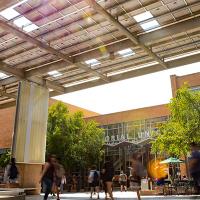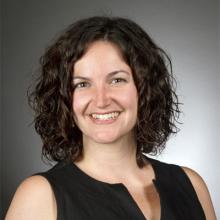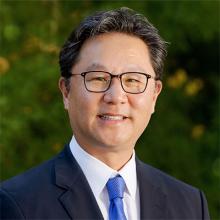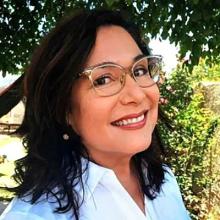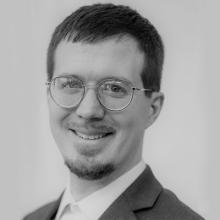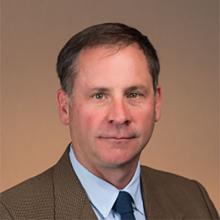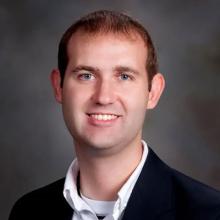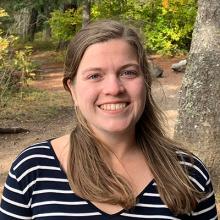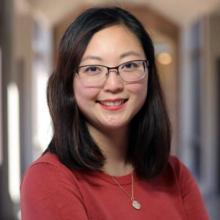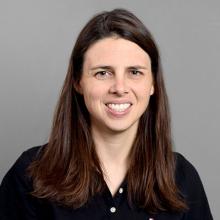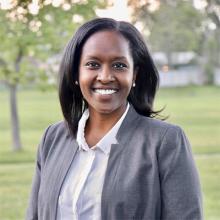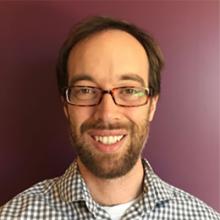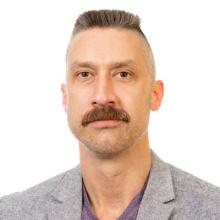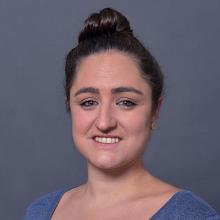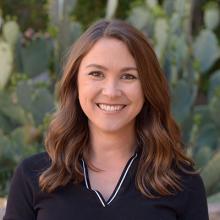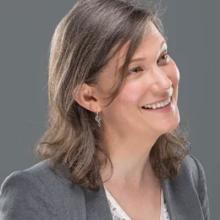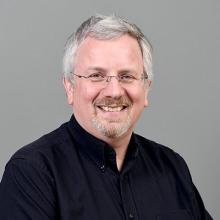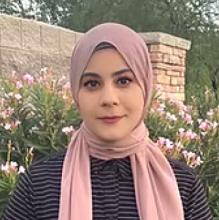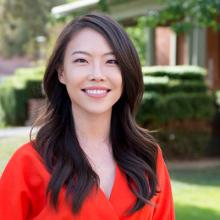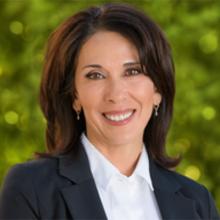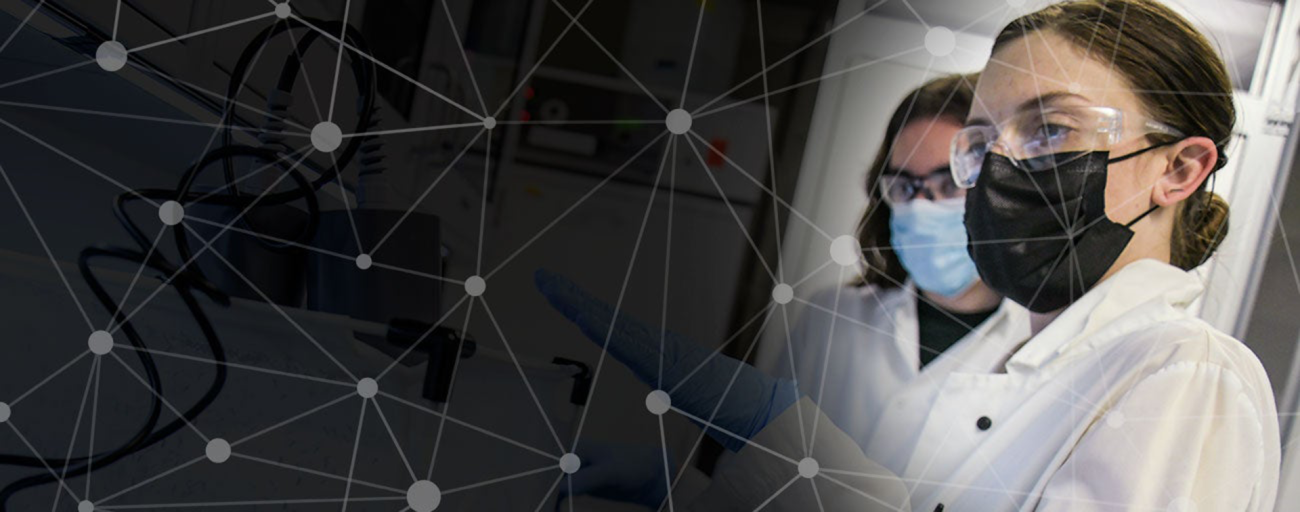
Natural Sciences Inclusion Summit 2022
November 9, 2022, 9 a.m.- 4 p.m. MU, Arizona Ballroom and online
About the Summit
The College of Liberal Arts and Sciences and the Research for Inclusive STEM Education (RISE) Center will be co-sponsoring a Natural Sciences Inclusion Summit on Wednesday, November 9. The goal of this summit is to convene the ASU community to learn about current research and initiatives related to diversity, equity, and inclusion happening in the natural sciences at ASU. This event will be open to the broader ASU community and we are calling for potential presenters. This is a great opportunity to get feedback on your work or initiative and to meet other like-minded folks at ASU.
Date: November 9, 2022
Time: 9 a.m.-4 p.m.
Host: Arizona State University College of Liberal Arts and Sciences and The RISE Center
Location: Arizona Ballroom, Memorial Union, Tempe Campus and online
Session 1 | 9 a.m.
Welcome and rationale for the inclusion summit
Kristen Parrish
Associate Director of RISE Center
Welcome remarks
Kristen Parrish is an Associate Professor in the School of Sustainable Engineering and the Built Environment and Chair of the Graduate Programs for the Del E. Webb School of Construction at Arizona State University (ASU).
Her work focuses on integrating energy efficiency measures into building design, construction, and operations processes. Specifically, she is interested in novel design processes that financially and technically facilitate energy-efficient buildings. Her work also explores how principles of lean manufacturing and construction facilitate efficiencies in the buildings industry. Finally, Kristen studies how project- and experience-based learning foster better understanding of engineering and management principles in the classroom; she has won two Top 5% Teaching awards from the Ira A. Fulton Schools of Engineering at Arizona State University and a Distinguished Professor Award from the Construction Industry Institute in recognition of these efforts.
Kenro Kusumi
Dean of Natural Sciences
College-level and unit-level inclusion efforts in parallel for the natural sciences: faculty, staff, and students
Kenro Kusumi is dean of natural sciences and professor of the School of Life Sciences and in the College of Liberal Arts and Sciences (The College) at Arizona State University. He received his BA from Harvard College in Biochemical Sciences and his PhD in Biology from MIT. He carried out postdoctoral training as a Hitchings-Elion Fellow of the Burroughs Wellcome Fund at the National Institute for Medical Research in London. Kusumi was previously faculty at the University of Pennsylvania School of Medicine and the Children’s Hospital of Philadelphia, where he served as director of pediatric orthopaedic research. At ASU, he has served in a number of roles including as director of the School of Life Sciences and associate dean in The College. Kusumi helped to launch the University of Arizona College of Medicine-Phoenix in 2006, where he continues on the faculty in the Department of Basic Medical Sciences, and is adjunct faculty at the Translational Genomics Research Institute.
Kusumi is committed to developing equitable and inclusive programs for students, and he is working to create a more inclusive academic environment, including serving as mentor and faculty advisor in university LGBTQ organizations.
Lisa Magaña
Associate Dean of Diversity, Equity, and Inclusion in the College of Liberal Arts and Sciences
What is the DEI Dean’s Advisory Council and an overview of projects
Lisa Magaña is a Professor in the School of Transborder Studies at Arizona State University (ASU). She has published in the area of immigration and Latino public policy issues. She is the author of, Straddling the Border and The Politics of Diversity and Arizona, Immigration and Latinos & Politics. She is also co-editor of the book Latino Politics and Arizona's Immigration Law SB 1070. She has a new co-authored book with César Silva: ¡Empoderados!/Empowered! How Latinos Transformed Politics in Arizona (2021) as well as Immigration and Latinos & Politics (2021). She has also published numerous chapters and book articles on immigration and Latino Politics. She has been interviewed in numerous media outlets.
Session 2 | 9:30 a.m.
How should we define inclusion?
James Hammond
Research Fellow, School of Education, University of Michigan
Naming Injustice: STEM Rhetoric and the Exclusionary Force of "JEDI"
James Hammond’s research centers on scholarly communication, education research infrastructures, and the social and intellectual histories of writing assessment.
Paul LePore
Associate Dean
Which undergraduates stay and leave in the natural sciences?
Paul LePore is associate dean for Student and Academic Programs in The College of Liberal Arts and Sciences. His appointment began in December 2008. As associate dean, LePore works in The College and throughout the university on student issues, including recruitment, retention and graduation; academic advising; program development; learning assessment; course scheduling; and enrollment management. A sociologist by training (specializing in social psychology and sociology of education), his scholarship looks to identify factors that promote academic achievement and student success. In addition to his duties as associate dean, he is also a clinical professor in the T. Denny Sanford School of Social and Family Dynamics. In his research, LePore works to analyze trends that impact our nation's educational system.
W. Carson Byrd
National Center for Institutional Diversity, University of Michigan
The need to move beyond numbers to consider racial equity
W. Carson Byrd is a senior fellow-in-residence and a 2019-2020 Scholar-in-Residence at the National Center for Institutional Diversity. His research examines race and educational inequality, inter- and intraracial interactions and their influence on identities and ideologies, and the connections among race, science, and knowledge production. These three areas intertwine under a broader research umbrella examining how educational institutions, particularly colleges and universities, can simultaneously operate as centers for social mobility and engines of inequality. His work often exhibits a “behind the numbers” or “contextualized numbers” approach to quantitative methodology combining survey, organizational, and other available data to peel back how social processes shape people’s navigation and understanding of race, educational environments, and related outcomes and experiences. This approach promotes a critical eye toward methodological use as well to understand how research may enlighten us regarding sociological phenomena in some situations, but may obscure such phenomena in other situations. Dr. Byrd’s work also involves tackling systemic inequality on our college campuses, particularly as they influence access to higher education and the persistent disparities found in science, technology, engineering, and mathematics (STEM) programs.
Carly Busch
PhD student in Biology and Society
Inclusion is not about just gender and race: The diversity of identities that are important to consider
Carly is currently a PhD student at ASU and is broadly interested in research to make undergraduate learning environments more equitable and inclusive. She is particularly interested in how students' identities impact their experiences in undergraduate biology spaces. In her free time, Carly enjoys trying new recipes, exploring the outdoors with her wife, and sewing.
Carly is a recipient of the NSF GRFP. Carly's work focuses on how student and instructor concealable stigmatized identities (CSIs) influence their experiences in biology learning environments.
Susan Cheng
Manager of Diversity and Inclusion, Department of Mechanical Engineering, University of Michigan
What does representation mean? Reflections on the inclusion of women and Asian Americans in biology
Dr. Susan Cheng is an ecosystem ecologist with fields of study in forest biogeochemistry, climate change, biology education, and diversity and equity in higher education. As the Manager of Diversity and Inclusion for the Department of Mechanical Engineering at the University of Michigan, Cheng is particularly passionate about creating disciplinary and department cultures that increase the representation and inclusion of women and racially minoritized communities in science and engineering.
Session 3 | 10:45 a.m.
Recent research on inclusion from members of the Research for Inclusive STEM Education (RISE) Center
Sara Brownell
Director of the Research for Inclusive STEM Education (RISE) Center
What is the RISE Center and overview of research
Trained as a PhD neuroscientist, Sara transitioned to become a discipline-based education researcher and conducts research on how we can make undergraduate biology learning environments more inclusive, specifically focusing on women, LGBTQ+ students, students with disabilities, transfer students, and religious students.
She is a national expert on course-based undergraduate research experiences (CUREs) and has advocated for them as a route to broaden access to undergraduate research. She has been awarded multiple teaching and research awards and is the proud recipient of the 2020 LGBTQ+ Educator of the Year award.
Meseret Hailu
Assistant Professor, Teacher's College
Focusing on failure and noise: A model for revamping engineering laboratories to foster coherent learning
Dr. Meseret F. Hailu is an Assistant Professor of Higher and Postsecondary Education at Arizona State University (ASU). Her research focuses on the retention of minoritized women in STEM higher education pathways. Recently, her work has focused on 1) how Black immigrant women in the U.S. persist in engineering, and 2) how higher education institutions in Eastern Africa conceptualize and implement equity initiatives. Prior to coming to ASU, Dr. Hailu was a Postdoctoral Research Associate at The Ohio State University.
The guiding question that unifies Dr. Hailu's comparative scholarship is: How do institutions of higher education retain minoritized women in STEM pathways? To answer this question, she is conducting two research threads concerning the experiences of undergraduate Black women in two different geographic settings: East Africa and the United States.
Chris Mead
Assistant Research Professor, School of Earth and Space Exploration
A multi-institution analysis of systemic advantages in introductory STEM courses
His research has focused on understanding how digital learning experiences can be designed and used most effective in helping students to learn. Much of this work is design-based research, so I am fortunate to be working with the ETX Center at ASU, who are continually exploring new ways to make effective use of technology in education. While most of my research examines how science education can be made more effective, but effectiveness only partially captures the overall mission of a university or other school. It is equally important that high quality education is equitably provided. I am currently working with a team at ASU funded by the Howard Hughes Medical Institute’s Inclusive Excellence program to study ASU’s growing online degree and course offerings in order to understand whether they are providing inclusive excellence.
Barret Michalec
Associate Professor in Edson College of Nursing and Health Innovation
Examining the premed path as an example of discriminatory design
A sociologist by training, Michalec’s research examines socialization and professionalization processes and mechanisms nested within health professions education and practice – most notably those impacting socio-emotional and team-based skills and attributes. His work also explores disparities in health, healthcare, and within the health professions, with a focus on how structural design of pre-professional pathways may perpetuate the lack of diversity of the healthcare workforce.
Naneh Apkarian
Assistant Professor, School of Mathematical and Statistical Studies
An intersectional look at how instructional practices impact math affect
Dr. Apkarian's current focus in research is departmental change aimed at improving students' experiences with introductory STEM courses. Existing and ongoing research in RUME and DBER (and K-12 mathematics and science education fields) points to many pedagogical approaches, curricular changes, and program structures which can support student success and broaden participation beyond the current system. However, shifts at the individual, departmental, and institutional level toward implementing these practices and structures are fraught with difficulty and a major shift has not appeared. Dr. Apkarian believes that a systemic cultural approach is needed to understand the relationships between individual, department, and institutional factors that support and constrain interest, willingness, and capacity for instructional change.
Katelyn Cooper
Assistant Professor, School of Life Sciences
Exploring how research and teaching affect science graduate student mental health
Katey is the PI of the Cooper Biology Education Research Lab at ASU. Her research group examines how to make biology learning environments more inclusive for students with anxiety and depression. In addition, Katey leads RISE research projects focused on creating more inclusive academic biology environments for LGBTQ+ individuals and individuals with disabilities. Katey is also a member of the LGBTQ+ community.
Session 4 | 1 p.m.
Learning from each other about how we are striving for inclusion: poster sessions and information booths
- Lunch | 12:15 p.m.
- Poster Session 1 | 1 p.m.
- Poster Session 2 | 1:45 p.m.
Session 5 | 2:40 p.m.
Inclusive online education
Julie Greenwood
EdPlus at ASU, Vice Dean for Education Initiatives
ASU Online and inclusion
As the Vice Dean for Educational Initiatives, Dr. Greenwood works with the academic units at all ASU campuses, including deans, department chairs, faculty and staff to strengthen online programming and drive course development that transforms student learning experiences. In this role, Julie oversees Instructional Design and New Media, Learning Experience and Student Success, Adaptive and Personalized Learning, Assessment and Compliance, and the EdPlus Action Lab, leveraging data analytics and educational technology to improve and equalize degree completion. In addition, she is the EdPlus liaison to the University Innovation Alliance and the APLU Personalized Learning Consortium. Julie received her Ph.D. from the Neuroscience Program at the University of Alabama at Birmingham and is Associate Professor in the School of Mathematical and Natural Sciences in New College at ASU.
Ariel Anbar
Director of Center for Education through Exploration
A call to consider novel ways of building inclusion online and an introduction to ASU’s HHMI Inclusive Excellence Program
Dr. Ariel Anbar is a President’s Professor in the School of Earth and Space Exploration and the School of Molecular Sciences. He is a geochemist exploring Earth's past and future as an inhabited world, and the prospects for life beyond. He directs ASU’s Center for Education Through Exploration, which is reinventing digital learning around curiosity, exploration, and discovery.
Tasneem Mohommed
PhD student in Biology and Society
Challenges for online programs in natural sciences
Tasneem is a first-generation and transfer student born in Phoenix, Arizona, originally from Palestine. At Arizona State University, Tasneem is pursuing a B.S. degree and Master's degree in Biological Sciences with a concentration in Biology and Society, and on a Pre-health track. Due to her passion for education and medicine, Tasneem plans on continuing her studies to become a Biological Professor and a Physician Assistant (PA). She enjoys spending time with family and travelling during her free time.
Tasneem received the Graduate College Fellowship to pursue her Master's in Biology in fall 2021/spring 2022. She is studying the relationship between online biology learning environments and undergraduate anxiety and depression, as well as how being pre-med affects students' mental health.
Ara Austin
Director of Online Engagement and Strategic Initiatives, OURS program
A program to integrate research into online science courses
As the Director of Online Engagement and Strategic Initiatives, Dr. Austin focuses on efforts that increase experiential learning opportunities for online students across The College of Liberal Arts and Sciences. Prior to this role, Dr. Austin served as the Managing Director of Online Programs for the School of Molecular Sciences, successfully launching online degree programs in biochemistry and chemistry which include accelerated in-person laboratory courses that provide crucial hands-on experiences to online students pursuing STEM degrees.
In terms of research, Dr. Austin's work has been dedicated to analyzing the effects of socio-cognitive (motivation and self-regulation) and socio-cultural (instructor gender effects, stereotype threat, and cultural/social capital) factors on student performance in organic chemistry courses at ASU and also at University of Rochester. She has also studied these factors with the ASU Online population in recent years.
Session 6 | 3:40 p.m.
Closing and ASU as a leader for inclusion
Nancy Gonzales
Executive Vice President and University Provost
Trajectory of ASU in the future as an inclusive HSI
Nancy Gonzales is the executive vice president and university provost of Arizona State University.
Prior to leading as university provost, Professor Gonzales was the dean of natural sciences in The College of Liberal Arts and Sciences. During her time as dean, the six academic units she managed produced exciting educational innovations, substantial growth in student enrollment, pioneering fundamental science, and research on grand challenges in human health, energy, sustainability, materials science and space exploration, among others.
As a Foundation Professor in the Department of Psychology, she conducted groundbreaking research on culturally informed models of human health and development with the goal of developing public health strategies to reduce health disparities in vulnerable communities. She also served as director of the REACH Institute, an interdisciplinary center of excellence dedicated to the implementation and dissemination of evidence-based interventions in settings such as primary health care, schools, family courts and community mental health agencies to improve mental and physical health outcomes.
Professor Gonzales is a fellow of the American Psychological Association and the recipient of many professional honors, including distinguished career awards from the American Psychological Association, the Society for Research on Adolescence and the Society for Prevention Research. She was named an Arizona Latina Trailblazer, received the Founder’s Day Award for Research from the ASU Alumni Association and was named one of the 2021 Most Influential Women in Arizona.
Kristen Parrish
Associate Director of RISE Center
